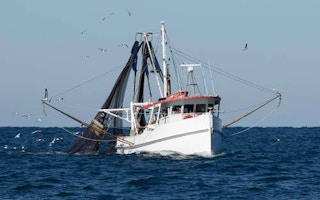Funding and job cuts at Australia’s climate change research body could undermine the country’s goal of dominating the Asian premium food market by placing farmers at a disadvantage to US and European competitors.
Australia’s extreme weather means farmers rely heavily on climate change forecasts from the Commonwealth Scientific and Industrial Research Organisation (CSIRO) to mitigate the impact of bushfires, cyclones and droughts.
“In the next 30 years we will need to alter our farming habits due to rainfall, heat, drought, soil moisture. Australian farmers need the best data and predictions,” said former chief of CSIRO marine research Tony Haymet.
Without such data, Haymet said Australia and its farmers will be “at a disadvantage in the long run”.
Thousands of international climate scientists signed a protest letter over the job losses, saying: “If these climate science research cuts at CSIRO proceed without being filled elsewhere, then Australia will not develop its capability to assess the accelerating risks associated with climate change”.
CSIRO Chief Executive Larry Marshall defended the funding and job changes saying it would enable new research into how to live with climate change.
Dairy farmer Marian Macdonald relies on CSIRO soil moisture forecasts to predict pasture growth on her 600 hectares of rolling hills where she keeps almost 300 dairy cows.
The predictions give her an early warning about any shortage in foliage and if red flags appear she buys feed early in bulk to ensure milk production is not affected. Macdonald’s herd supplies the world’s biggest dairy company, Fonterra.
“I could lock in a hay supplier for what we needed early in the season instead of coming in half way through and having to pay a premium with everyone else,” said Macdonald from her farm near Jack River in Victoria state.
“It’s not theoretical … not having the data would have a real impact on how we run. We wouldn’t have been able to plan ahead this season like we did.”
The CSIRO announced 350 job cuts and a shift away from climate change monitoring in a staff email last week, the result of cuts to its budget by former prime minister and climate change sceptic Tony Abbott in 2014.
“
It’s not theoretical … not having the data would have a real impact on how we run. We wouldn’t have been able to plan ahead this season like we did.
Marian Macdonald, dairy farmer
The job losses specifically target the Ocean and Atmosphere and Land and Water divisions, which may lose more than half their staff. A CSIRO spokesman said no final decision had been made on which programmes would be closed.
The Commonwealth Fisheries Association said CSIRO’s long-term predictions on ocean warming were vital for the industry.
“Having up to date data on climate change is really important to our members as it affects fishing stocks and ultimately where they will fish,” said executive officer Renee Vajtauer.
Rural exports are playing a growing role in Australia’s economy following the end of a decade-long mining boom. Rural exports in 2015 were worth A$45.2 billion ($31.95 billion), a 64 per cent increase since 2010.
CSIRO joint studies have led to breakthroughs in agricultural production.
Australia’s Treasury Wine Estates Ltd is using new irrigation methods that save water and specially developed sunscreen for grapes.
The CSIRO has also worked with the wheat industry, developing genetically modified drought resistant grain.
“As climate change bites hard, the risk increases for farmers,” said Paul Ryan, director of the Australian Resilience Center, which works with farmers on sustainable resource management.
“Anything that can improve the risk management benefits food supply and has a direct bottom line impact.”










